-
Eat the Right Amount of Food

Eat the Right Amount of Food When you get hungry, you may feel a rumbling stomach, or a light headache. Some people feel irritable, or unable to concentrate. When you’re not hungry, you may eat because you feel bored, sad, or anxious, have happy memories of a certain item, or just like the way the…
-
It’s not a cheat, it’s a treat!

It’s not a cheat, it’s a treat! Preventing diabetes should always be your goal, and traveling will go smoothly if you do a little planning ahead. Trip planning should include ways to manage your diet and medications if you take any. A month or more before your trip, talk to your doctor or diabetes educator…
-
Reassessing Your Targets
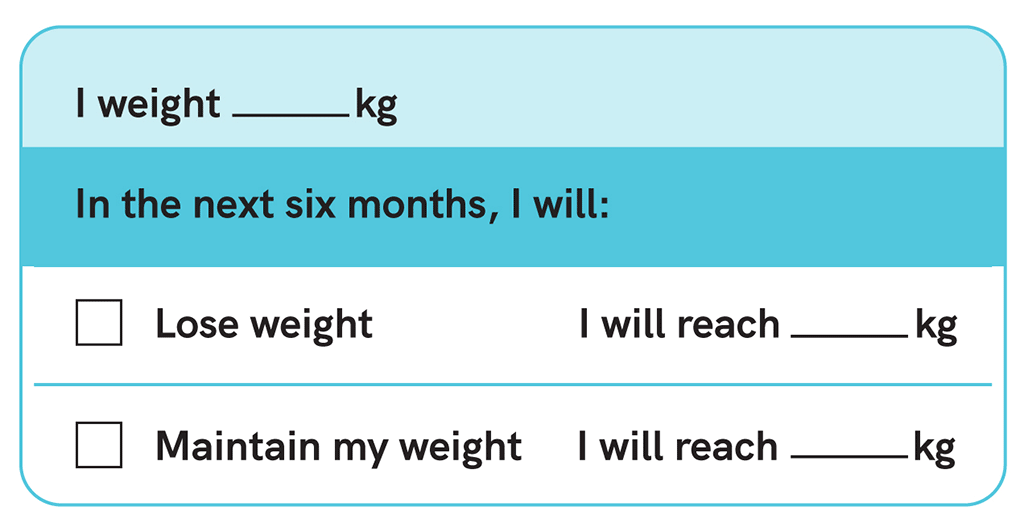
Congratulations You have successfully completed your lifestyle program. Take a moment to acknowledge your successes and celebrate what you’ve accomplished. Maintain Your New Lifestyle To maintain your new healthy weight, you have to look at your life in maintenance as a continuing journey. There will be ups and downs, but things will even out. Maintaining…
-
Exercise in Ramadan
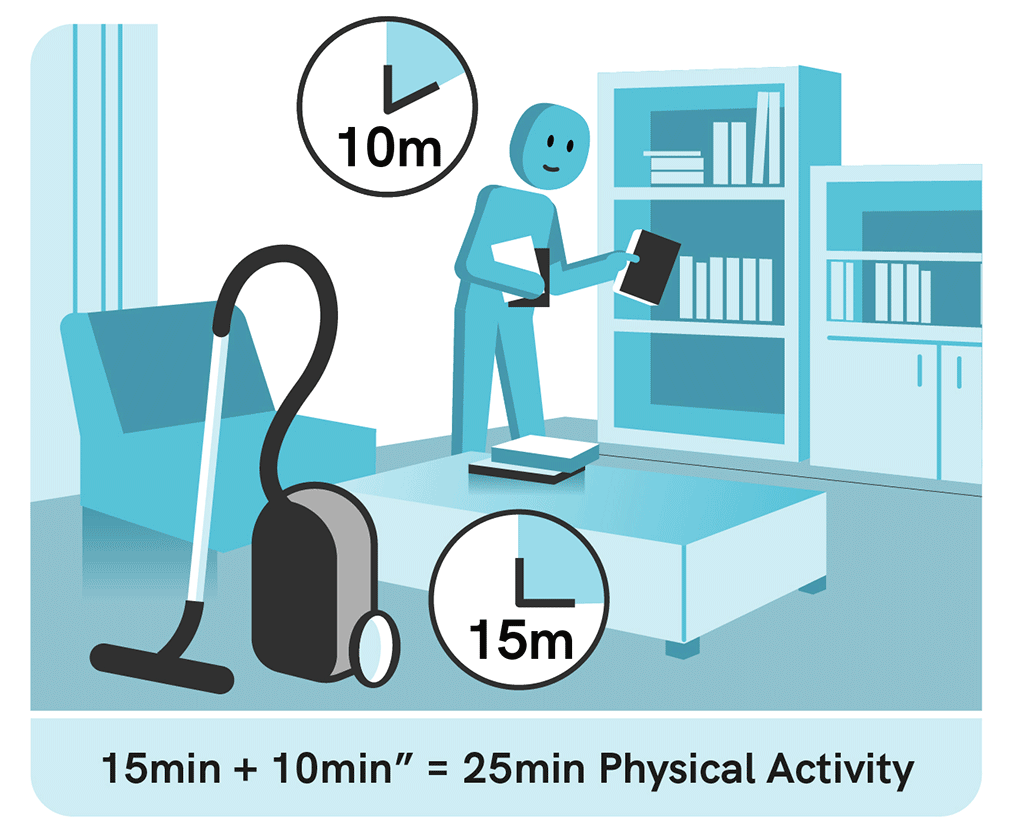
Lifestyle in Ramadan The month of Ramadan brings changes in lifestyle habits including prolonged fasting, different foods and meal timing, and longer prayer activities. Can people with prediabetes exercise in Ramadan? Although people fast for 12-20 hours based on time zones, increased caloric intake, reduced physical activity, and altered sleep patterns can affect metabolism and…
-
When to break the fast
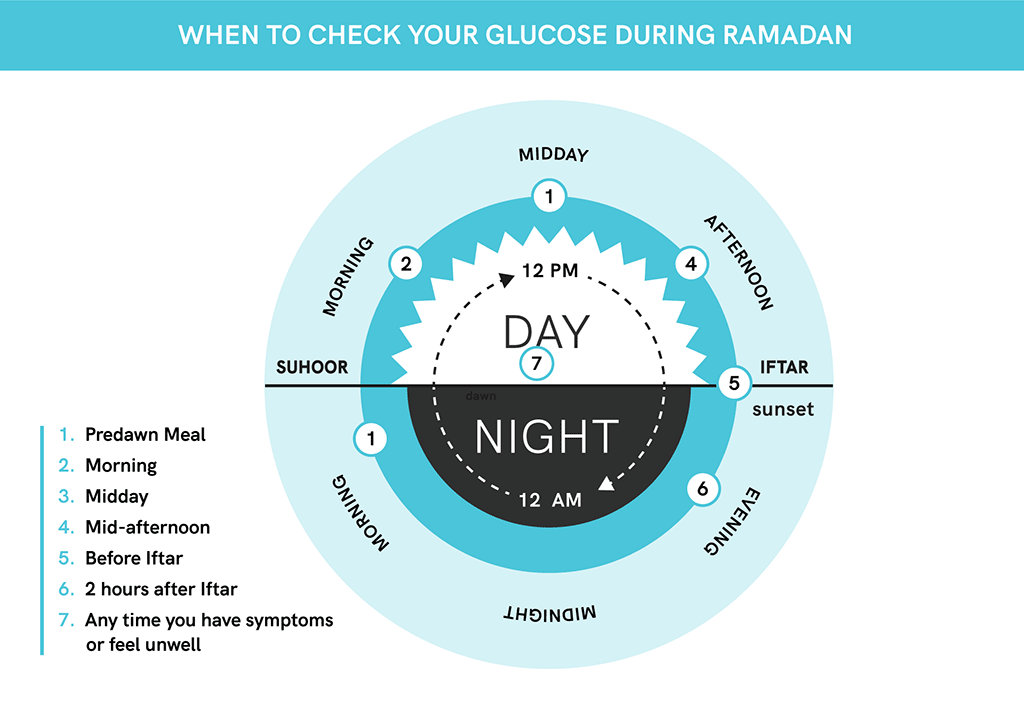
When to break your fast? It is very important to test your blood glucose levels several times daily during your fast, so you can check you are keeping safe. This is especially critical if you have type 1 diabetes or if you have type 2 diabetes and require insulin. Blood glucose monitoring and insulin injections…
-
What happens to the body during fasting?
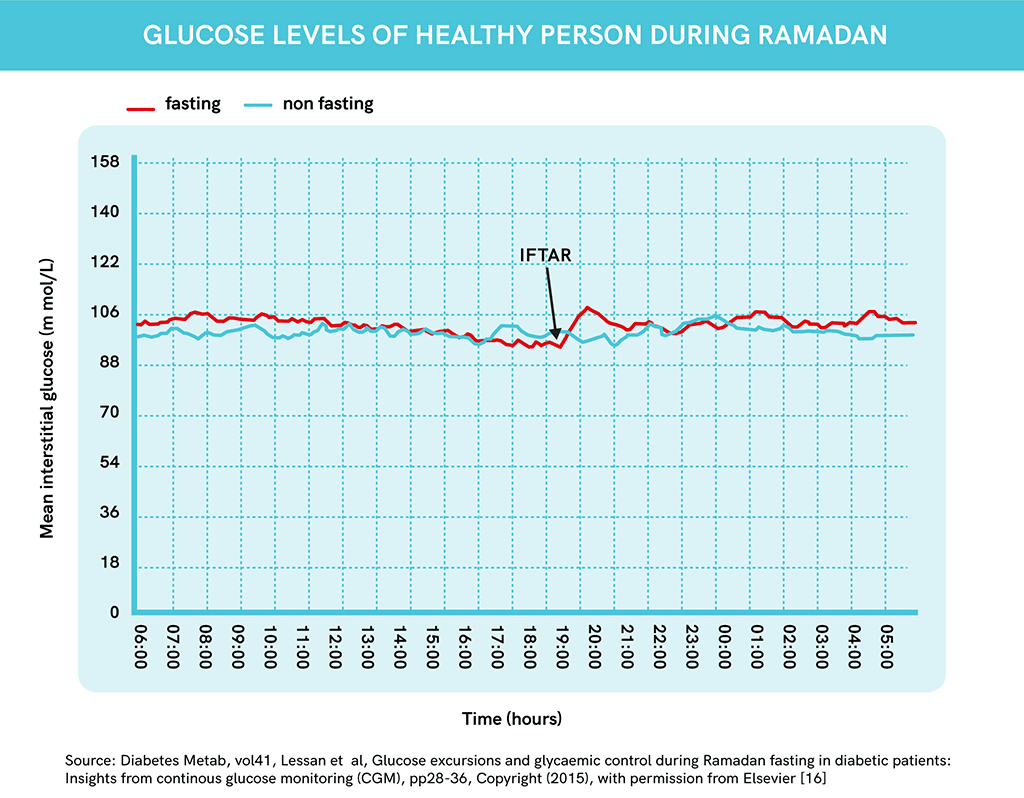
What happens to the body during fasting? When we fast, at about eight hours after our last meal, our bodies start to use energy stores through glucose and fat to keep our blood glucose levels normal. For most people this is not harmful. Some people with diabetes may not be able to keep their glucose…
-
Diabetes in Ramadan

What is Ramadan Ramadan is the 9th month of the Muslim calendar. During this month, Muslims fast from sunrise to sunset. Fasting is considered one of the five pillars of Islam. Do all Muslim Fast during Ramadan? As per Islamic regulations, all healthy adult Muslims should fast. Although exceptions exist for people with serious medical…
-
Safety Tips Prior to Physical Activity
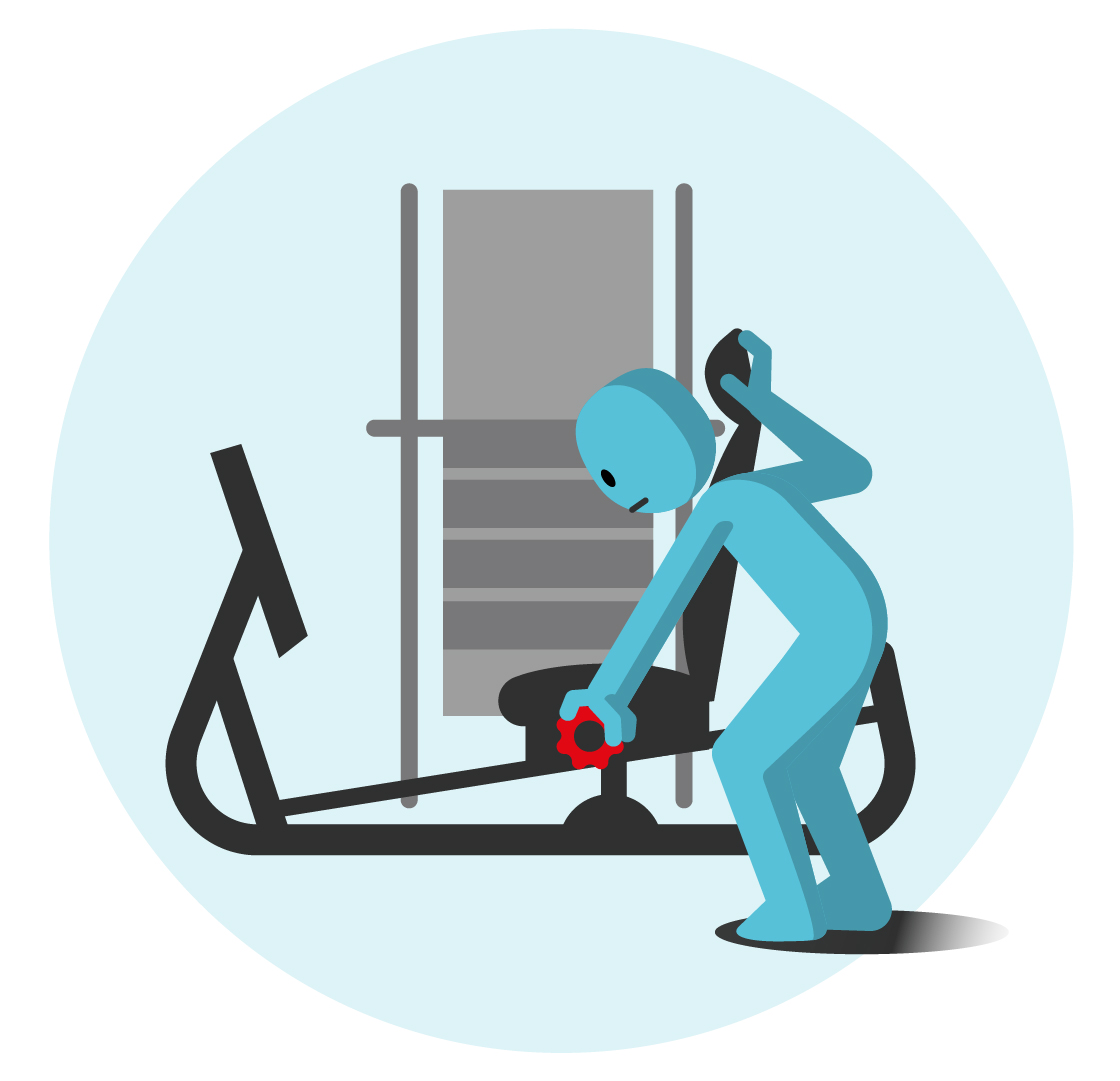
Physical Activity and Your Safety You should consult your Care Team before starting strenuous physical activity. Remember to take into consideration the activity type, mode, duration, intensity, and frequency. It is also important to ensure you are wearing appropriate shoes to avoid injury. Why Should I Take Safety Steps? Exercise puts an extra demand on…
-
The Ideal Amount of Physical Activity
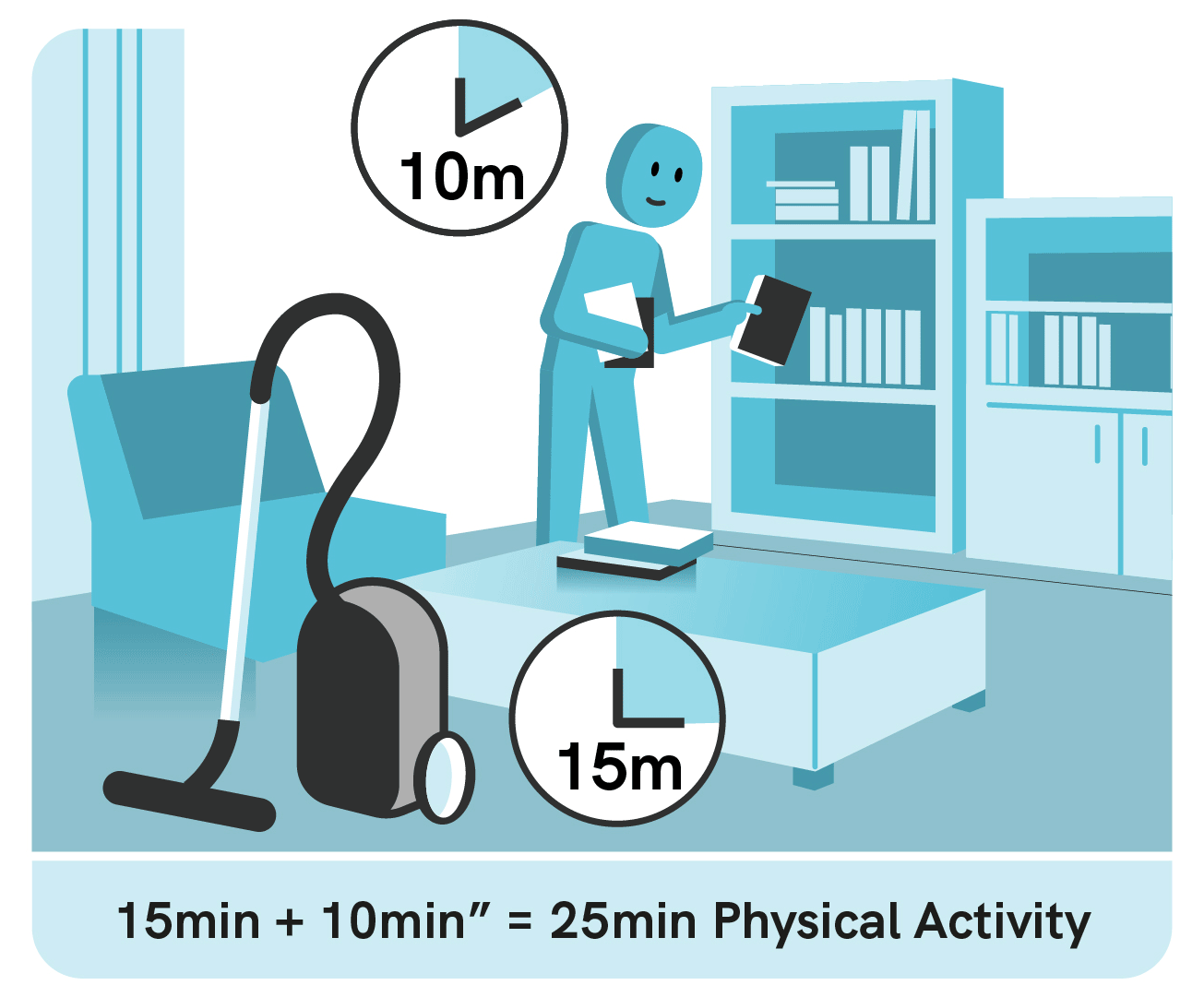
What is the Ideal Amount of Physical Activity? The recommended amount of exercise per week is 150 minutes of moderate-to-intense physical activity. This means 20 to 25 minutes of activity each day, however avoid 2 consecutive days without physical activity. What kinds of activities count? • Moderate-to-intense physical activities includes:• Walking briskly• Doing housework• Dancing•…
-
Why Does Physical Activity Matter
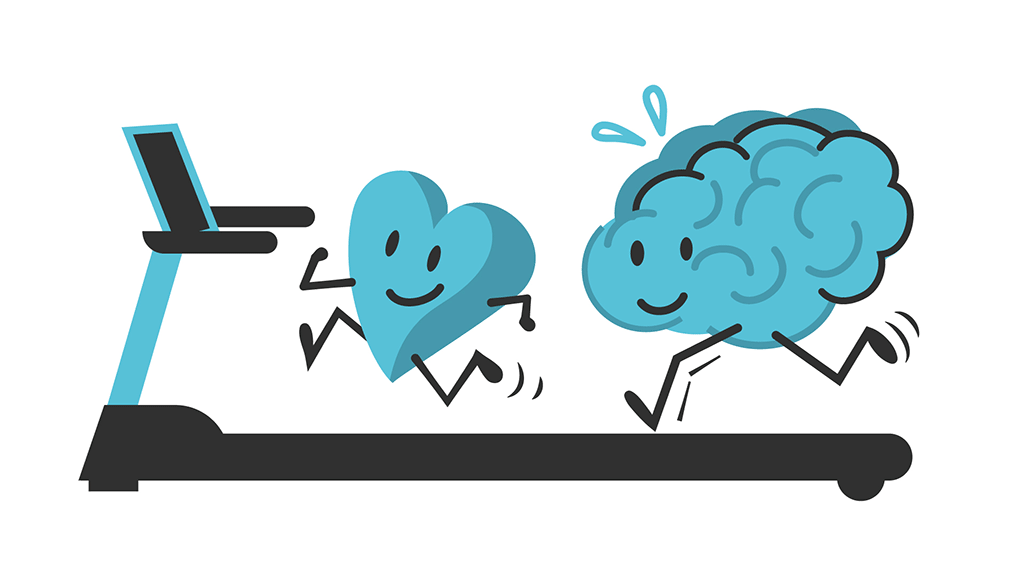
Why Does Physical Activity Matter? Being physically active is just as important as taking your prescribed medication or testing your blood sugar. Exercise (planned and structured physical activity) and a minimum of 10,000 steps (physical activity) not only improves your blood glucose levels but also helps with weight loss, and improves your general well-being What…